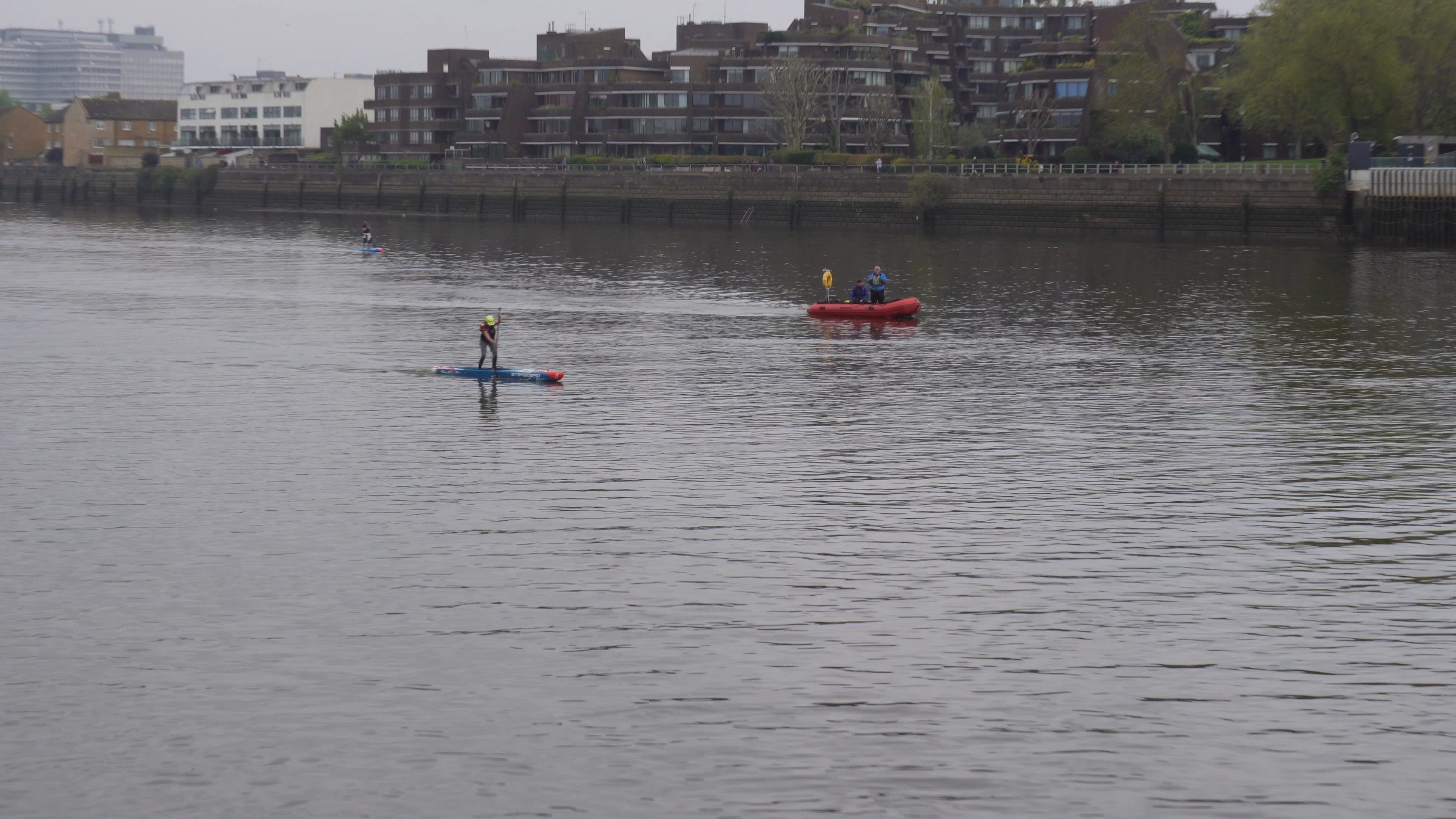
The Devizes to Westminster creates a SUP class for 2026
England’s most iconic ultra paddling race has finally created an official category for SUPs. After SUP pioneers Emily King and Paddy McCormack successfully finished the 4 day, 120 mile ultra in April as a trial, the event announced this week that 2026 will mark the first year with an official SUP class.
The Devizes to Westminster has been running since 1948, and it’s steeped in the types of traditions you’d expect from a 75+ year old race that finishes in front of Big Ben. But the current race organisers have recognised the need to have an eye on the future as well as on the past.
“A whole untapped market”
While SUP trialists were out on the course in April working hard to meet strict time cut-offs in the face of brutal headwinds, Race Director Paul Fielden told Paddler Media why the event decided it was finally time to bring stand up paddleboarders into the fold:
“The numbers are not growing as we’d want them to grow… If you look at what’s happening in paddlesport in the UK today, paddleboarding is growing exponentially. There’s a whole untapped market.” Paul went on to stress the importance of getting feedback from official SUP trialists Patrick McCormack and Emily King. He summarised the objectives of the trial: “Can racing paddleboards compete with the slower and more endeavor type kayaks, and can we get them within our start and finish windows, and make it an event that’s attractive to them? We have to be flexible.”
Two days after that conversation, SUP trialists Paddy and Emily made it to the finish of the stages race at Barn Elms Boathouse having successfully met the cut-off times each day. Paddy managed to finish with plenty of time to spare, ahead of several of the slower kayaks and canoes. At just 5’ 2”, Emily had to fight hard with her small frame to make progress on the water against raging headwinds almost strong enough to turn her into a kite. But she too was successful, and even Paddle UK’s new Board Chair Nick Donald showed up on site to celebrate the historic moment.
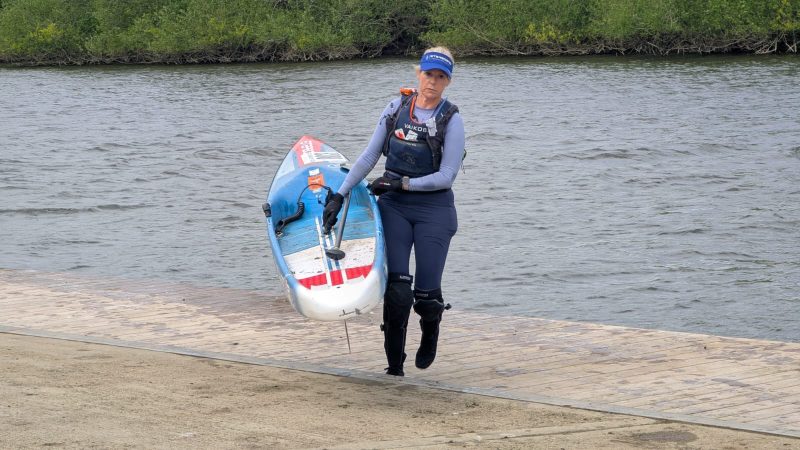
“Fit for the Future”
2025 was the first year that Paddle UK, the UK’s national governing body for paddlesports, officially sponsored the DW. It marked a major step in the recognition and future-proofing of this longstanding ultra. Nick Donald told Paddler Media: “I wanted to come and see an iconic race… it’s something that I think Paddle UK should be associated with, and I look forward to sitting down with the organisers and seeing what we can do mutually to get people into boats.”
When asked about his priorities as the new Paddle UK Chair, Donald went onto speak about the importance of embedding SUP: “We’ve got a wonderful opportunity with the World Cup in the English Riviera in Torbay next year, so one thing at the top of my agenda is making sure we embed SUP into Paddle UK and we can get more people on the water in every type of craft.” SUP is a critical component of Paddle UK and the ICF’s current strategy called “Fit for the Future”. 2026 is looking like a major year for SUP in the UK.
Overcoming historic hurdles
The addition of an official SUP class to the DW is even more historic considering that for many years, SUPs were explicitly banned from racing. The ban went into effect after John Hibbard and Anthony Cooper raced the course unofficially in 2009, although not because anything went notably wrong with their run down the course (as far as the record shows). The reasoning for the ban may have been related to the onerous regulations that the Port of London Authority (PLA) places on paddlers, in particular SUPs, on the Tideway. For a taste of just how burdensome those rules are, you can browse the PLAs Tideway Code: all 130 pages of it. The PLA sets out unique rules for SUPs (“a comparatively unstable craft” in the PLAs verbiage) that vary according to the time of day, time of year, the section of the Thames, instructor qualifications, and more.
In 2025, the DW moved the finish line for the 4 day stages race about 5 miles west of Westminster. As iconic as the “W” in “DW” is between Parliament, Big Ben, the London Eye… it’s smack in the middle of major boat traffic that can put out terrifying waves as high as 4ft or more. While the scenery at Barn Elms Boathouse just upriver of Putney Bridge may not be as recognisable as central London, it makes the logistics vastly more viable for the race organisers and is part of the calculus for how the event is able to include SUPs.
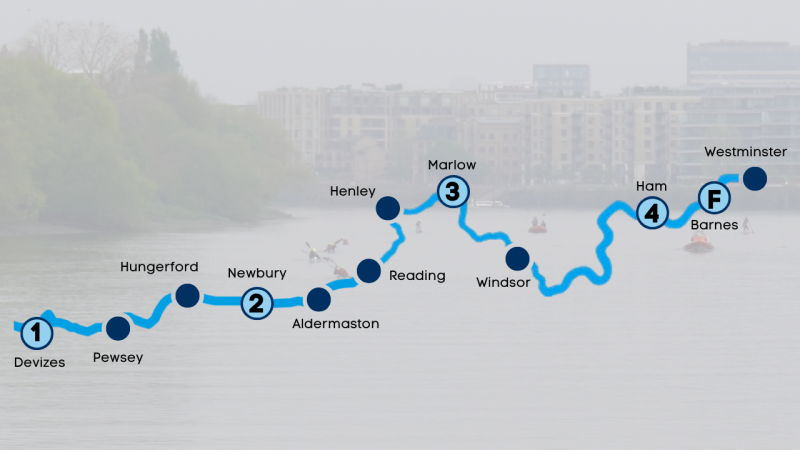
Day 1 (Good Friday) Devizes to Newbury 34 miles
Day 2 (Easter Saturday) Newbury to Marlow 36 miles
Day 3 (Easter Sunday) Marlow to Ham 38 miles
Day 4 (Easter Monday) Ham to Barn Elm Boathouse 10 miles
Better late than never
The DW joins several other multi-disciplinary ultra paddling events in allowing SUPs to race, albeit in the “better late than never” class. The Texas Water Safari had its first official SUP finisher in 2012 (Shane Perrin); the 444 mile Yukon River Quest had its first in 2016 (Bart de Zwart, Norm Hann, Jason Bennett, and Joanne Hamilton-Vale on her second attempt in 2017); and the Alabama 650 in 2023 (John Knippers). For many of these multi-disciplinary ultras though, SUPs are allowed to race but not granted a specific “class”. For some, that’s because the only “classes” considered are solo/tandem rather than canoe/kayak/SUP etc.
And just because some of these ultras allow SUPs to participate, doesn’t mean they always do. The 2025 edition of the Texas Water Safari just wrapped up with a total of 0 paddle boarders: not just 0 finishers, but 0 on the start line. TWS does bill itself as “The world’s toughest canoe race”, and the intrepid SUP racers who have finished it will readily admit that it’s tough. In 2024, Veronica Sosa became the first woman to finish TWS on a SUP and set a new record: 97 hours and 14 minutes. For the 2025 race, she hopped back into a canoe and with partner Ryan Gillikan, finished the race in a far more reasonable time of 49 hours (reasonable compared to 97 hours, at least).
But with DW adding an official SUP class, and the relatively accessible requirement of finishing 120 miles over 4 days, it could be the start of something bigger. The UK has a robust and rapidly growing ultra paddling scene: just since last year, there’s already two new ultras in the Thames 200 Ultra and The Eliminator. When you throw Brendon Prince’s SUP Twelve into the mix which has attracted strong international talent including Tanja Ecker (Germany) and Carlo Arias (Costa Rica), and now DW, the UK starts to look like a major global hub of SUP ultra distance racing.
Tried and tested, with one notable change
In the SUP trial earlier this year, the event set a requirement for paddle boarders to use 14 foot hardshell boards only. Their main rationale was that paddlers would need the faster equipment to hit the time cut-offs. But after seeing Emily and Paddy finish the race and listening to their feedback, the event has made one big change for the first official SUP class in 2026: inflatable SUPs are allowed too. The only requirement: “…all SUP boards – either rigid or inflatable – will need to include a fixed fin or fins, and need to be a minimum length of 12ft 6 inch, and a maximum length of 14ft.”
Fans of inflatables and sub-14ft boards will rejoice. As advances in technology have brought about quicker and quicker inflatable boards, the class could be increasingly competitive with hard boards. In the Thames 200 Ultra last year which shares about 50% of its course with DW, Jan Szandala raced on an inflatable and finished in third place. After 32 hours, he was less than 3 hours behind first and second and even finished ahead of the Yukon 1000 finisher Craig Sawyer who raced the Thames 200 Ultra on a hard board.
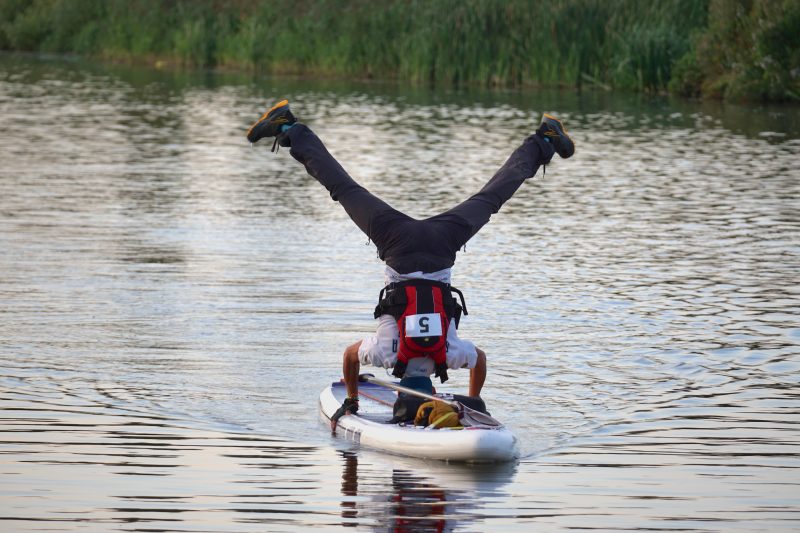
2026
With the new SUP class being made official for 2026, the race is likely to attract more SUP racers and maybe see new records. Emily and Paddy’s times from 2025 will stand as the first official SUP course records ready to be broken: 23:17:44 (men’s) and 28:11:22 (women’s). But just as important as the question of racers and records is the question of trophies…
DW is known for having trophies as iconic as its course, including for some non-traditional categories like “The Century Cup” for the fastest senior doubles finishers with both participants over age 50. Will the SUP winners get their own trophies? Stay tuned…




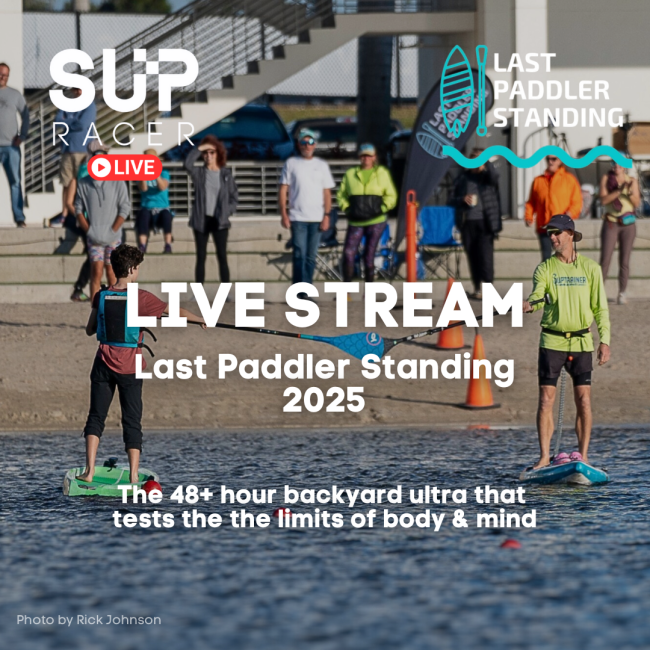
You must be logged in to post a comment.